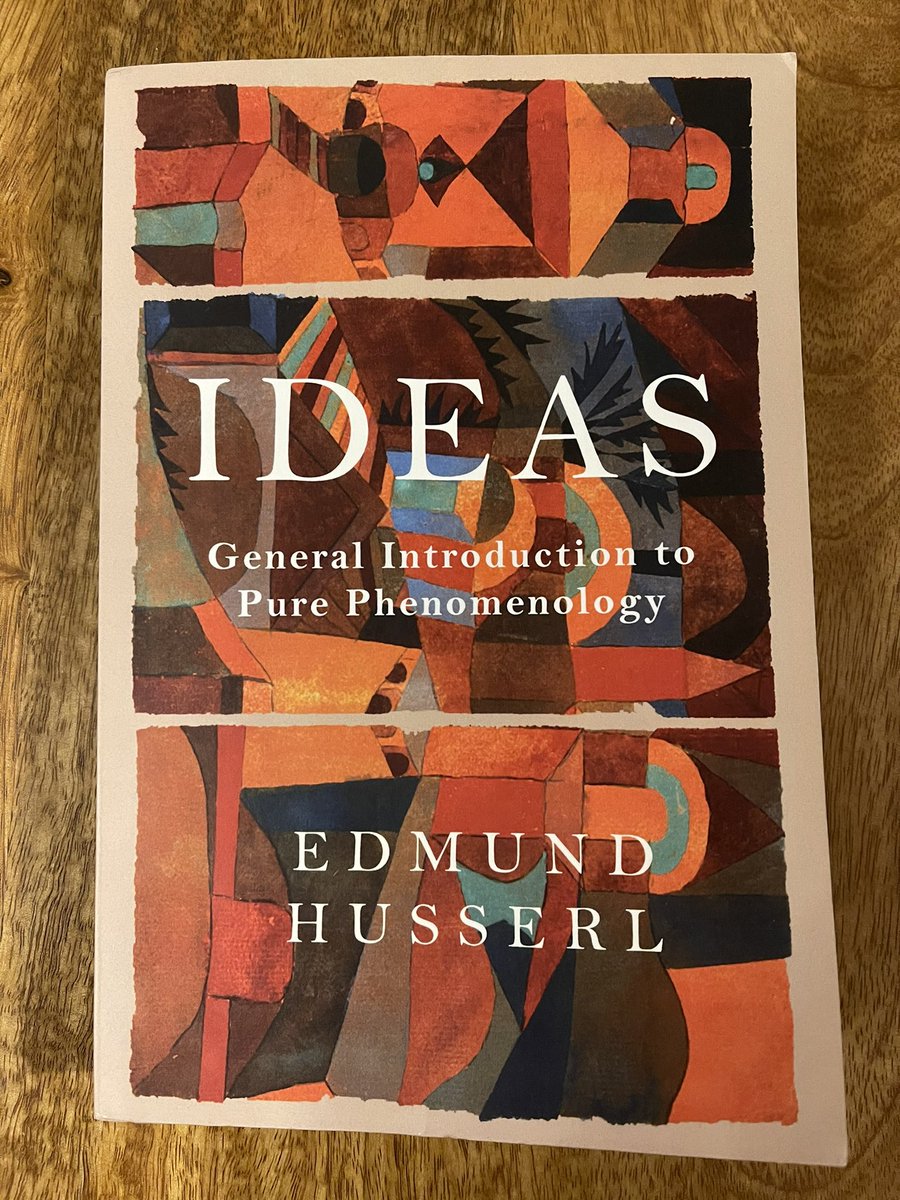Just finished re-reading this and I have some thoughts:  @roderickgraham @DrBretAlderman @sclouse2 1/
@roderickgraham @DrBretAlderman @sclouse2 1/
 @roderickgraham @DrBretAlderman @sclouse2 1/
@roderickgraham @DrBretAlderman @sclouse2 1/
For many, “lived experience” is a trendy term that has spurious and ambiguous definitions. Husserl was the first person to quantify this term and there is value in explaining its true meaning not the one hijacked by some today. 2/
Phenomenology is a branch of philosophy which is “to the things themselves” of which Husserl is the grandfather of this branch. In short, it aims to explain experiences. It transcends or looks behind false dichotomy of objective/subjective frameworks. 3/
Objective and subjective reality and ontology are not in opposition to phenomenology. Rather, phenomenology is attempting to see beyond and enhance what it means to “be” in the world. In my reading, there are no value judgments or judgments made about experiences. 4/
We all operate within the world with our experience. Again, this is not superior to someone else’s and it is not generalizable or transferred to others. The definition of one’s being is possessive; it’s always my own and only mine.
Husserl believed that each “ego” has its own experiences and looked at each immanent experiences as following a previous one. In other words, the “lived” aspect is the composite of each moment to moment for a person.
He described these as “reflexions” in which one moment passes to the next moment. The “lived” aspect is the ever-present “now.” Therefore, you cannot only see experience as an object that “lives” in the past and present. The reflexive quality is always wrapped up in the now. 8/
“Reflexion” is the stream of experience and therefore, Husserl, is wrapping temporality within being (of which his student Heidegger would further expand upon). They both follow Heraclitus and Nietzsche about this flow of experiences as a state of ...becoming.... 9/
He describes these experiences for-themselves. These are not objective or subjective claims but rather descriptives of being. If calls for “bracketing” the objective/subjective claims and allowing the noema and noesis speak for themselves. 10/
In sum, Husserl’s original “lived experiences” were on describing the succession of flow of experiences that an individual will have in space. There was never any values, judgements, or generalizability for this. This would be treating the experiences as an object. 11/
There is a place for objective and subjective dichotomies but that is not the pure intention on understanding lived experiences. To remove the “brackets” and define and use “lived experiences” this way is inaccurate and confused. Fin.

 Read on Twitter
Read on Twitter


